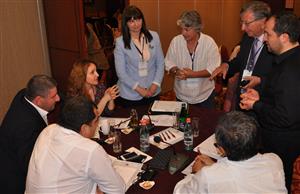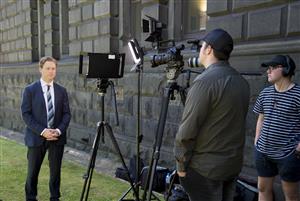Search Results
Search
Filter results
Advanced Filters
Your search returned 143 Solutions
-
Voting and participating in the electoral process
With its two regulations, Spain has introduced a voting procedure for blind electors as well as basic conditions of accessibility and non-discrimination for persons with disabilities to participate in elections and political life. This latter legislation is a broader policy framework aimed at improving the implementation of participatory rights.
Spanish Ministry of Home Affairs, Department on Electoral Cooperation, ROYAL DECREE 1612/2007 ON AN ACCESSIBLE VOTING PROCEDURE FOR PEOPLE WITH VISUAL DISABILITIES & ROYAL DECREE 422/2011 ON THE CONDITIONS FOR THE PARTICIPATION OF PERSONS WITH DISABILITIES IN POLITICAL AND ELECTORAL PROCESSES, Spain -

Supporting DPOs in six countries to bring the UN CRPD to life
Mobility International USA is an NGO led by people with disabilities. Its Global Disability RightsNow! (RN!) project partners disability organizations and legal experts in the US with disabled persons organisations (DPOs) in other countries in coordinating in-country plans to strengthen legislation and increase political participation.
MIUSA - Mobility International USA, Global Disability RightsNow!, United States of America -
Training to actively engage in civic rights
Besides training and awareness raising, the project focuses on empowering people with disabilities to participate in community groups such as women's groups, school committees, cooperatives, etc. Working together, persons with disabilities gain confidence and community members take on disability issues as their own.
IFES - International Foundation for Electoral Systems, Nepal -
Increasing Voter Accessibility in Paraguay
Ahead of the 2015 municipal elections, USAID and Fundación Saraki reviewed the legal framework regarding accessibility in elections. Their recommendations led to new regulations, such as providing absentee ballots for the first time and making information about voting available in sign language and Braille.
USAID - United States Agency for International Development, Bureau for Policy, Planning, and Learning, Paraguay -
Training persons with intellectual disabilities to be self-advocates
The training of self-advocates takes an average of ten months and covers human rights, participation mechanisms, supported decision-making, and development of expressive ability, with the help of manuals and group teaching. Over 400 persons with intellectual disabilities and 100 facilitators undertook the training between 2014 and 2018.
FEPAPDEM - National Federation of Mothers and Fathers of People with Intellectual Disability, Ecuador -
Raising Awareness on the Right to Vote
The Mi Voto Cuenta ("My Vote Counts") campaign raises awareness by informing people with disabilities about electoral processes and about how to regain their right to vote. The campaign also reaches out to political parties and the legal system to arrange meetings with political groups in all communities of Spain.
Plena Inclusion Spain, Mi Voto Cuenta, Spain -
Enfranchising people under guardianship
Till 2013 Japan’s Election Law deprived people under adult guardianship of their right to vote and to stand for elections. In a spectacular court case, the Tokyo District Court condemned this as unconstitutional. The repeal of the discriminatory article led to the enfranchisement of more than 136,000 persons.
Tokyo District Court, REVISION OF ELECTION LAW, Japan -
Empowering Individuals in their Right to Vote
ENABLE Scotland and the UK Electoral Commission have jointly developed easy-read guides to support people with learning disabilities to vote, plus voting factsheets for family members and support workers. In addition, workshops and events are organised where people with learning disabilities meet their local politicians.
ENABLE Scotland, #ENABLEtheVote, United Kingdom -
Guidelines for accessible elections in Europe
The outcomes of the ADAP project include developing recommendations for accessible elections in Europe – in both regular and easy-to-read versions in 21 languages – covering legislation, accessible information, support for decision-making etc. as well as collection of good practices from 27 European countries (in 3 languages).
Inclusion Europe, France -

Electoral inclusion campaign for people with intellectual disabilities
ICanVote is a campaign to support the right of people with intellectual disabilities to participate in elections. It focuses on providing three key components: easy language and dual-read content on political citizenship, online campaign information through web and social media, and multimedia materials in easy read language.
Inclusion Melbourne, ICanVote, Australia